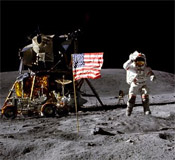United States National Aeronautics and Space Administration

United States National Aeronautics and Space Administration: Publications
Document Type
Article
Date of this Version
4-19-2007
Abstract
As climate changes due to rising concentrations of greenhouse gases in the atmosphere, agriculture will be one of the key human activities affected. Projections show that while overall global food production in the coming decades may keep pace with the food requirements of a growing world population, climate change might worsen existing regional disparities because it will reduce crop yields mostly in lands located at lower latitudes where many developing countries are situated. Strategies to enhance local adaptation capacity are therefore needed to minimize climatic impacts and to maintain regional stability of food production. At the same time, agriculture as a sector offers several opportunities to mitigate the portion of global greenhouse gas emissions that are directly dependent upon land use, land-use change, and land-management techniques. This paper reviews issues of agriculture and climate change, with special attention to adaptation and mitigation. Specifically, as adaptation and mitigation strategies in agriculture are implemented to alleviate the potential negative effects of climate change, key synergies need to be identified, as mitigation practices may compete with modifications to local agricultural practices aimed at maintaining production and income. Under future climate and socio-economic pressures, land managers and farmers will be faced with challenges in regard to selecting those mitigation and adaptation strategies that together meet food, fiber and climate policy requirements.


Comments
Published in Mitig Adapt Strat Glob Change (2007).